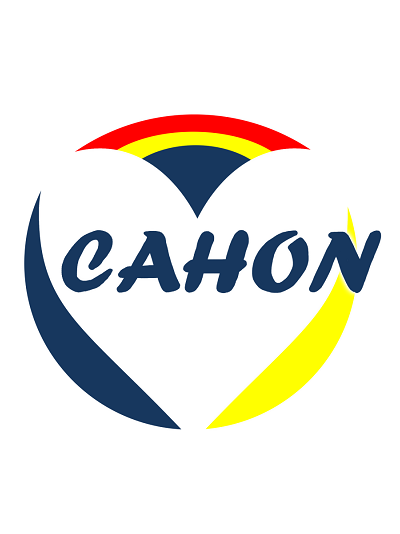NPM1 inhibits tumoral antigen presentation to promote immune evasion and tumor progression
IF 29.5
1区 医学
Q1 HEMATOLOGY
引用次数: 0
Abstract
Tumor cells develop multiple mechanisms to facilitate their immune evasion. Identifying tumor-intrinsic factors that support immune evasion may provide new strategies for cancer immunotherapy. We aimed to explore the function and the mechanism of the tumor-intrinsic factor NPM1, a multifunctional nucleolar phosphoprotein, in cancer immune evasion and progression. The roles of NPM1 in tumor progression and tumor microenvironment (TME) reprogramming were examined by subcutaneous inoculation of Npm1-deficient tumor cells into syngeneic mice, and then explored by CyTOF, flow cytometry, immunohistochemistry staining, and RNA-seq. The in-vitro T-cell killing of OVA-presenting tumor cells by OT-1 transgenic T cells was observed. The interaction of NPM1 and IRF1 was verified by Co-IP. The regulation of NPM1 in IRF1 DNA binding to Nlrc5, Ciita promoter was determined by dual-luciferase reporter assay and ChIP-qPCR. High levels of NPM1 expression predict low survival rates in various human tumors. Loss of NPM1 inhibited tumor progression and enhanced the survival of tumor-bearing mice. Npm1-deficient tumors showed increased CD8+ T cell infiltration and activation alongside the reduced presence of immunosuppressive cells. Npm1 deficiency increased MHC-I and MHC-II molecules and specific T-cell killing. Mechanistically, NPM1 associates with the transcription factor IRF1 and then sequesters IRF1 from binding to the Nlrc5 and Ciita promoters to suppress IRF1-mediated expression of MHC-I and MHC-II molecules in tumor cells. Tumor-intrinsic NPM1 promotes tumor immune evasion via suppressing IRF1-mediated antigen presentation to impair tumor immunogenicity and reprogram the immunosuppressive TME. Our study identifies NPM1 as a potential target for improving cancer immunotherapy.NPM1 可抑制肿瘤抗原呈递,促进免疫逃避和肿瘤进展
肿瘤细胞发展出多种机制来促进其免疫逃避。识别支持免疫逃避的肿瘤内在因子可为癌症免疫治疗提供新策略。我们旨在探索肿瘤内在因子NPM1(一种多功能核磷蛋白)在肿瘤免疫逃避和进展中的功能和机制。通过将NPM1缺陷的肿瘤细胞皮下接种到合成小鼠体内,然后通过CyTOF、流式细胞术、免疫组化染色和RNA-seq等方法探讨了NPM1在肿瘤进展和肿瘤微环境(TME)重编程中的作用。实验观察了 OT-1 转基因 T 细胞在体外对呈递 OVA 的肿瘤细胞的杀伤作用。通过Co-IP验证了NPM1和IRF1的相互作用。通过双荧光素酶报告实验和 ChIP-qPCR 测定了 NPM1 对 IRF1 DNA 与 Nlrc5、Ciita 启动子结合的调控作用。NPM1的高水平表达预示着各种人类肿瘤的低存活率。缺失 NPM1 可抑制肿瘤进展并提高肿瘤小鼠的存活率。缺失 Npm1 的肿瘤显示 CD8+ T 细胞浸润和活化增加,同时免疫抑制细胞减少。Npm1缺陷增加了MHC-I和MHC-II分子以及特异性T细胞杀伤力。从机理上讲,NPM1 与转录因子 IRF1 结合,然后阻止 IRF1 与 Nlrc5 和 Ciita 启动子结合,从而抑制 IRF1 介导的肿瘤细胞中 MHC-I 和 MHC-II 分子的表达。肿瘤内在 NPM1 通过抑制 IRF1 介导的抗原递呈来损害肿瘤的免疫原性,并对免疫抑制性 TME 进行重编程,从而促进肿瘤免疫逃避。我们的研究将 NPM1 确定为改善癌症免疫疗法的潜在靶点。
本文章由计算机程序翻译,如有差异,请以英文原文为准。
求助全文
约1分钟内获得全文
求助全文
来源期刊
CiteScore
48.10
自引率
2.10%
发文量
169
审稿时长
6-12 weeks
期刊介绍:
The Journal of Hematology & Oncology, an open-access journal, publishes high-quality research covering all aspects of hematology and oncology, including reviews and research highlights on "hot topics" by leading experts.
Given the close relationship and rapid evolution of hematology and oncology, the journal aims to meet the demand for a dedicated platform for publishing discoveries from both fields. It serves as an international platform for sharing laboratory and clinical findings among laboratory scientists, physician scientists, hematologists, and oncologists in an open-access format. With a rapid turnaround time from submission to publication, the journal facilitates real-time sharing of knowledge and new successes.

 求助内容:
求助内容: 应助结果提醒方式:
应助结果提醒方式:


